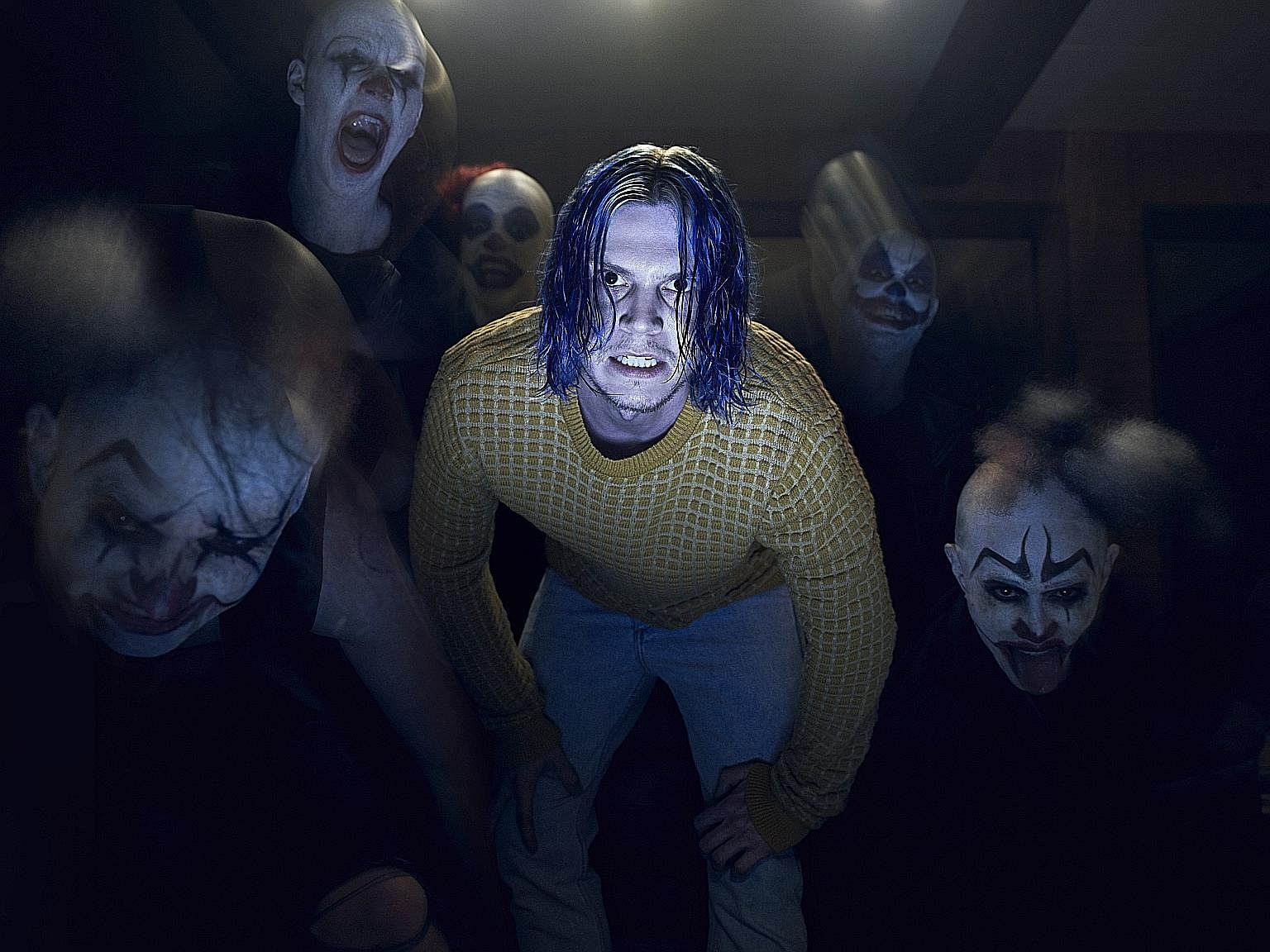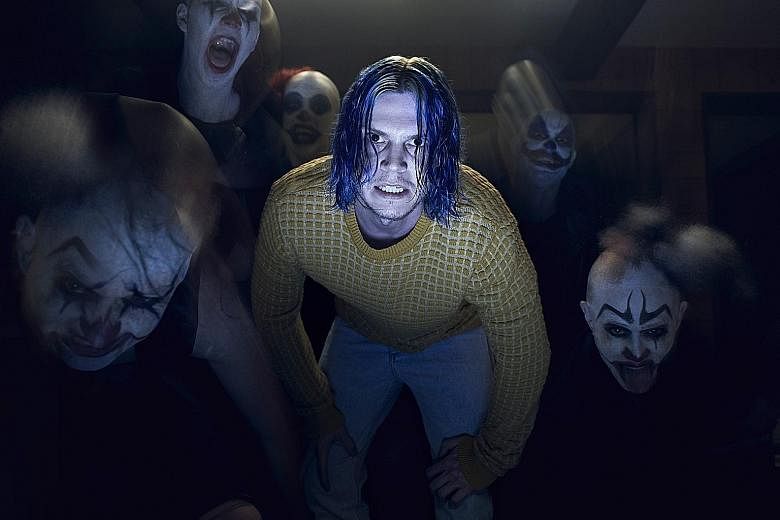After seven seasons, Ryan Murphy's horror anthology series may have produced its best instalment yet with American Horror Story: Cult, which may appeal to its core fanbase as well as those who like a more satirical bite.
The three episodes screened for reviewers begin with a darkly funny snapshot of the American presidential election last November: A group of well-to-do liberals - including Ally Mayfair- Richards (Sarah Paulson) and her wife, Ivy (Alison Pill) - watch dumbstruck as Mr Donald Trump unexpectedly beats Mrs Hillary Clinton.
It sparks the biggest meltdown in Ally, already crippled by a host of phobias, including anxiety triggered by the Sept 11, 2001 terror attacks as well as a morbid fear of clowns and certain patterns of holes.
Watching her hysterical reaction - and the subsequent revelation that one person in this leftie couple did not vote for whom she said she did - suggests that the presumably liberal writers of the show are able to laugh at themselves (or, at the very least, at other liberals).
The horror tropes the anthology has always relied on are still there, and as campy and cliched as ever - a quality that has alienated aficionados of either more high-brow or far schlockier entries in this genre, especially as the series seems to be running through a checklist of stereotypically scary things each season (witches, serial killers, nuns, et cetera).
This time, it is a gang of killer clowns that only Ally, and possibly her son, seems to be able to see. There is also a frightening young man named Kai (Evan Peters), who, emboldened by Mr Trump's victory, begins to make his presence felt in their small Michigan town.

This is not nearly as interesting as the lesser-known corners of the psyche explored through Ally's more exotic fears, which in turn lend themselves to a critique of her very American reliance on prescription drugs and psychiatry.
Early episodes also take a shot at the Mayfair-Richards' white privilege and how it is at odds with their self-image as progressives who could not possibly be prejudiced - the same trenchant commentary that elevated the horror film Get Out earlier this year.
-
VIEW IT / AMERICAN HORROR STORY: CULT
-
Debuts today on FX (10pm, Singtel TV Channel 310 and StarHub TV Channel 507), with new episodes on Wednesdays
3.5/5 stars
NARCOS, SEASON 3
Netflix
3.5/5 stars
While the show promises to explore the idea of modern cults of personality in later episodes, the most compelling throughline early on are the metaphors for the fear and paranoia in contemporary American politics.
The best horror has always articulated deeper social issues, so here's hoping the series can continue to do this while servicing the usual tropes.
In Season 3, Narcos ditches its old story of the Medellin Cartel and boss Pablo Escobar to anoint new baddies: the Cali Cartel and its four leaders - Gilberto (Damian Alcazar), his brother Miguel (Francisco Denis), head of its New York operation Chepe (Pepe Rapazote) and Pacho (Alberto Ammann), who commands the psychopath wing of its security team.
Other key players are the nice-guy head of the cartel's KGB-like surveillance network, Jorge (Matias Salcedo), and American drug enforcement agent Javier (Pedro Pascal), who is haunted by the pyrrhic victory of defeating Escobar, which only made the Cali Cartel stronger.
Javier's voice-overs pithily provide the fascinating political and socio-economic analysis: Escobar was flashy in his brutality, but the Cali mafia operates like a Fortune 500 company, a corporate franchise that prefers to make its enemies vanish quietly.
As with earlier seasons, the curtain is pulled back on the farcical, politicised nature of the war on drugs and how it makes for strange bedfellows.
Javier's determination to arrest the Cali bosses before they seal a sweetheart surrender deal with the authorities in six months sets up a ticking clock for the story, while various nail-biting Drug Enforcement Administration and cartel operations periodically ratchet up the suspense.
Character portraits are drawn economically, but skilfully, as with a wonderful sequence showing Gilberto juggling his four wives with the same military precision with which he runs his drug empire.
Ethical contradictions abound, from Javier's murky morality to how Jorge tells himself he is a good man who just happens to work for monsters.
So yes, there are shades of grey, but they are all pretty much of the same hue. And the show moves at such a brisk pace that there is little time to burrow into more intriguing details, such as the fact that Pacho was an out gay man ostracised by conservative Colombian society, yet inexplicably embraced by the cartel bosses.
Still, there is little fat on these 10 well-crafted episodes and they are all the more watchable for it. The catchy soundtrack, hummable opening credits and lyrical Spanish dialogue are also strangely addictive - you may find yourself wanting to take language lessons after this.
Horror, humour in a world that does not make sense


